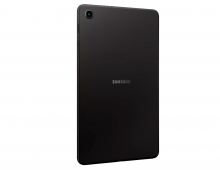
Tablet Shipments Outpace Fourth Quarter Targets
Worldwide media tablet shipments into sales channels rose by 56.1% on a sequential basis in the fourth calendar
quarter of 2011 (4Q11) to 28.2 million units worldwide, according to IDC Worldwide Quarterly Media Tablet and
eReader Tracker.
That represents an increase of 155% from the fourth
quarter of 2010. The market experienced
stronger-than-expected growth across many regions and at
many price points, leading to a full-year 2011 total of
68.7 million units. Based upon the markets' strong 2011
finish, and the clear demand expected in 2012, IDC has
increased its 2012 forecast to 106.1 million units, up
from its previous forecast of 87.7 million units.
Despite an impressive debut by Amazon, which shipped 4.7 million Kindle Fires into the market, Apple continued to see strong growth in the quarter, shipping 15.4 million units in 4Q11, up from 11.1 million units in 3Q11. That represents a 54.7% worldwide market share (down from 61.5% in 3Q11). Amazon's shipment total put the company in second place with 16.8% of the worldwide market. Third-place Samsung grew its share from 5.5% in 3Q11 to 5.8% in 4Q11. Despite shipping more units, including its new Nook Tablet, Barnes & Noble saw its worldwide market share slip to 3.5% (down from 4.5%). Pandigital rounded out the top five, grabbing 2.5% of the market, down from 2.9% the previous quarter.
"Amazon's widely-reported entry into the media tablet market with a $199, 7-inch product seemed to raise consumers' awareness of the category worldwide despite the fact that the Fire shipped almost exclusively in the U.S. in the fourth quarter," said Tom Mainelli, research director, Mobile Connected Devices. "As a result, products across the pricing spectrum sold well, including everything from Apple's premium-priced iPads (which start at $499) to Pandigital's line of Android-based, entry-level tablets (which start at $120). The success of market leader Apple was particularly noteworthy, as the company's shipment total for the quarter represents an increase of 110.5% from 4Q10."
As predicted, Android made some strong gains in 4Q11, thanks in large part to the Amazon Kindle Fire's success (the Fire runs a custom version of Google's Android OS). Android grew its market share from 32.3% in 3Q11 to 44.6% in 4Q11. As a result, iOS slipped from 61.6% market share to 54.7%; Blackberry slipped from 1.1% to 0.7%. WebOS, which owned 5% of the worldwide market in 3Q11, dropped to zero in 4Q11. Looking ahead, IDC expects Android to continue to grow its share of the market at the expense of iOS.
"As the sole vendor shipping iOS products, Apple will remain dominant in terms of worldwide vendor unit shipments," Mainelli said. "However, the sheer number of vendors shipping low-priced, Android-based tablets means that Google's OS will overtake Apple's in terms of worldwide market share by 2015. We expect iOS to remain the revenue market share leader through the end of our 2016 forecast period and beyond."
Despite the strong growth of media tablet shipments, ePaper-based eReaders also experienced stronger-than-expected growth in the fourth quarter. That growth occurred thanks to sharp price cuts in established markets such as the U.S. and Canada, as well as increasing shipments in regions outside of North America. In 4Q11 the worldwide total increased to 10.7 million units, up from 6.5 million units in 3Q11. That represents a quarter-over-quarter improvement of 64.6% and a year-over-year improvement of 64.3%. IDC expects growth to continue in 2012 as major players such as Amazon, Barnes & Noble, and Kobo look to expand into new international markets.
Despite an impressive debut by Amazon, which shipped 4.7 million Kindle Fires into the market, Apple continued to see strong growth in the quarter, shipping 15.4 million units in 4Q11, up from 11.1 million units in 3Q11. That represents a 54.7% worldwide market share (down from 61.5% in 3Q11). Amazon's shipment total put the company in second place with 16.8% of the worldwide market. Third-place Samsung grew its share from 5.5% in 3Q11 to 5.8% in 4Q11. Despite shipping more units, including its new Nook Tablet, Barnes & Noble saw its worldwide market share slip to 3.5% (down from 4.5%). Pandigital rounded out the top five, grabbing 2.5% of the market, down from 2.9% the previous quarter.
"Amazon's widely-reported entry into the media tablet market with a $199, 7-inch product seemed to raise consumers' awareness of the category worldwide despite the fact that the Fire shipped almost exclusively in the U.S. in the fourth quarter," said Tom Mainelli, research director, Mobile Connected Devices. "As a result, products across the pricing spectrum sold well, including everything from Apple's premium-priced iPads (which start at $499) to Pandigital's line of Android-based, entry-level tablets (which start at $120). The success of market leader Apple was particularly noteworthy, as the company's shipment total for the quarter represents an increase of 110.5% from 4Q10."
As predicted, Android made some strong gains in 4Q11, thanks in large part to the Amazon Kindle Fire's success (the Fire runs a custom version of Google's Android OS). Android grew its market share from 32.3% in 3Q11 to 44.6% in 4Q11. As a result, iOS slipped from 61.6% market share to 54.7%; Blackberry slipped from 1.1% to 0.7%. WebOS, which owned 5% of the worldwide market in 3Q11, dropped to zero in 4Q11. Looking ahead, IDC expects Android to continue to grow its share of the market at the expense of iOS.
"As the sole vendor shipping iOS products, Apple will remain dominant in terms of worldwide vendor unit shipments," Mainelli said. "However, the sheer number of vendors shipping low-priced, Android-based tablets means that Google's OS will overtake Apple's in terms of worldwide market share by 2015. We expect iOS to remain the revenue market share leader through the end of our 2016 forecast period and beyond."
Despite the strong growth of media tablet shipments, ePaper-based eReaders also experienced stronger-than-expected growth in the fourth quarter. That growth occurred thanks to sharp price cuts in established markets such as the U.S. and Canada, as well as increasing shipments in regions outside of North America. In 4Q11 the worldwide total increased to 10.7 million units, up from 6.5 million units in 3Q11. That represents a quarter-over-quarter improvement of 64.6% and a year-over-year improvement of 64.3%. IDC expects growth to continue in 2012 as major players such as Amazon, Barnes & Noble, and Kobo look to expand into new international markets.





















